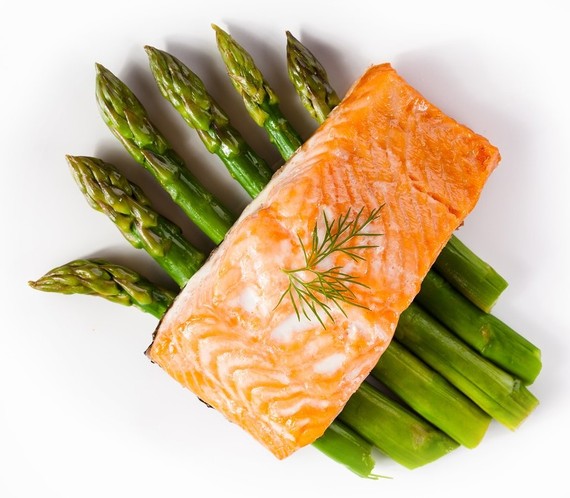
To truly eat for a Fit Body, you have to first eat for a Fit Soul. How do we know that? Most of us have experienced that backslide, when no matter how stubbornly we stick to a diet, at feel ourselves slip back into old habits. Even if a strict regimen is taking off the pounds, our souls are starving, because we're not eating mindfully. That's because food is far more than a matter of calories and nutrients.
That's why it's no surprise that scientists are finding that extreme measures such as juice fasts aren't effective or healthy in the long run. Despite our desire to cleanse our body, our whole system still craves sustenance -- and we wind up overeating to compensate. To truly eat for wellness, we need to eat from a place that connects to our spirit first, bringing ourselves into true balance.
Mindful eating will bring more energy, joy and health to our whole selves. Here are six key tips for getting started:
1. Keep a three-day food diary.
We often eat without knowing why or even what we're eating. Mindful eating means eating with awareness. Keep a diary for three days, recording what you eat, what you were feeling or thinking before you reached for it, and what was happening around you. For instance, did you grab a pastry after a tense day at office? Mark remembers "rewarding" long training workouts by bingeing on chocolate chip cookies -- a habit it took weeks to break. But there's nothing like seeing your own habits on paper.
2. Pay attention to how your body responds.
Our modern lives have us eating on the run -- and sometimes we ignore our discomforts as a result. Instead, take note of how your body feels after you eat certain foods. Do you feel bloated, tired, lightheaded, sniffly? If so, chances are that's not a healthy food for you. Common examples include shellfish, meat, eggs, dairy, soy, wheat, some fruits, and nuts.
3. Track your protein.
Feeling hungry is a matter of the key nutrients your body needs, not calories. Without sufficient protein for daily recovery and repair, no amount of calories will leave you satisfied. Protein helps build muscle and can counter the effect of too many carbs. But consume too much protein and you'll stress your kidneys. Adjust your protein intake to your weight and activity level: a sedentary person needs half as much protein (0.9 grams for every 2.2 pounds of bodyweight) as a very active one (1.8 grams for every 2.2 pounds of bodyweight).
4. Don't avoid fats.
We know now how valuable good fats are -- for vital hormonal processes, skin health, and sexual functions. Fats that are high in Omega-3 oils can help prevent heart disease. But too many fats adds excess weight and can damage the cardiovascular system. Stay away from saturated fats, but not the good ones. Get in the habit of drizzling flaxseed or cold-pressed olive oil on your food, and go for that fatty fish, like salmon or sardines.
5. Avoid toxins.
Be aware not only of the kind of food you're eating, but how it's made. Food is one of the main methods through which environmental chemicals enter your body, but it's also the ones you have the most control over. Give your body a break by choosing organic foods free of insecticides or chemical additives. Make a new habit of reading labels: if you don't recognize it or can't pronounce it, chances are it's a chemical your body will not be fond of. Choosing good foods means your body can use its energy to take in nutrients instead of having to get filter out what's artificial.
6. Simplify.
While Brant was in Mexico with the Huichol, he developed a new awareness of the true function of food: to give the body the necessary strength it needs to function in daily life. It took some getting used to their simple and redundant diet of tortillas and beans. But he saw how his body thrived on that combination of protein the diet provided. In the simplicity was a sense of purpose, beauty and appreciation for the life cycle of food, from planting to harvesting to preparation. He developed a new sense of gratitude for these humble but sustaining meals.
We know more than we ever did about the impact certain foods have on our bodies. We know that sugar is really a chemical, and a harmful one at that. We know that caffeine in small quantities can help sharpen us mentally, but too much can over-stimulate our adrenals and have the opposite effect.
There's so much to learn. But the most important thing is not poring over every new study and wondering how to adapt. It's far more simple. Be mindful of what you're eating. Pay attention to how food makes you feel, mentally as well as physically. Food has to power to restore us, body and soul, if we let it.